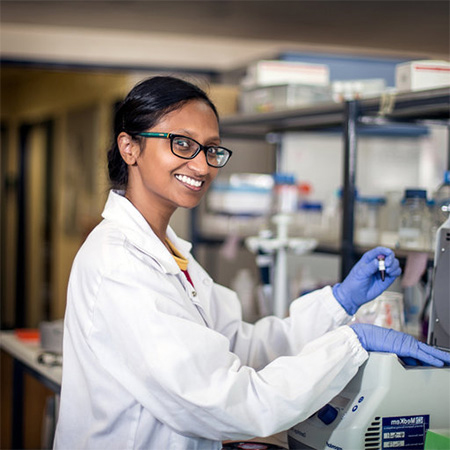To date South Africa has recorded more than 2,8 million Covid-19 infections and administered close to 16,6 million vaccine doses.
Over those few weeks the North-West University (NWU) proved that not only is it dedicated to teaching excellence, but also community engagement and an ethic of care.
Joining the vaccine drive
The NWU opened its three campuses to students, staff, and members of the public to be vaccinated.
From 16 July till 19 September, more than 21 000 doses were successfully administered on the Mahikeng, Potchefstroom and Vanderbijlpark campuses.
This great milestone was achieved through the assistance of staff, students and stakeholders who volunteered to help.
Knowledge is power
Apart from its vaccination drives, the NWU also continues to educate all its stakeholders about Covid-19 and the myths and facts surrounding the vaccine.
The Microbiology subject group in the Faculty of Natural and Agricultural Sciences celebrated International Microorganism Day on 17 September by hosting a webinar titled “Corona-virus and the perceptions of vaccines”. Dr Jinal Bhiman, principle medical scientist at the National Institute for Communicable Diseases (NICD), was the keynote speaker at the event. She kicked of her talk by describing what the SARS-CoV-2 virus looks like, what it is made of, and shared more information on its background.
According to Dr Jinal, the main reason for the current global crisis can be attributed to asymptomatic infections and transmissions that occur before symptoms are developed. “The rapid transmission rate of Covid-19 has led countries all over the world to focus on building immunity by the rapid development and deployment of vaccines.”
Although most of the vaccines were produced and approved within a year, Dr Jinal said a lot of the background work for these vaccines comes from years of research and studies on the MERS-Coronavirus and SARS-Coronavirus vaccines after identifying the potential risks that these viruses pose.
She emphasised that the public must understand that vaccinating is no longer about protecting others, but more about protecting yourself from severe infection and death, since one has a higher chance of succumbing to the virus if not vaccinated.
She also touched on the latest data that shows that vaccines have a minimum durability rate of approximately four months. Vaccinated individuals will therefore need to get booster shots in future.
Prof Thebe Rodney Medupe, deputy dean for community engagement and stakeholder relations in the faculty, highlighted the need to celebrate International Microorganism Day annually.
Prof Carlos Bezuidenhout, research director of the Unit for Environmental Sciences and Management, thanked the hundreds of staff, students and stakeholders that participated in the webinar, and praised Dr Jinal for her inspirational talk and her ability to simplify complex scientific information.
Click here to watch a recording of the webinar.

Dr Jinal Bhiman is the principle medical scientist at the National Institute for Communicable Diseases.
